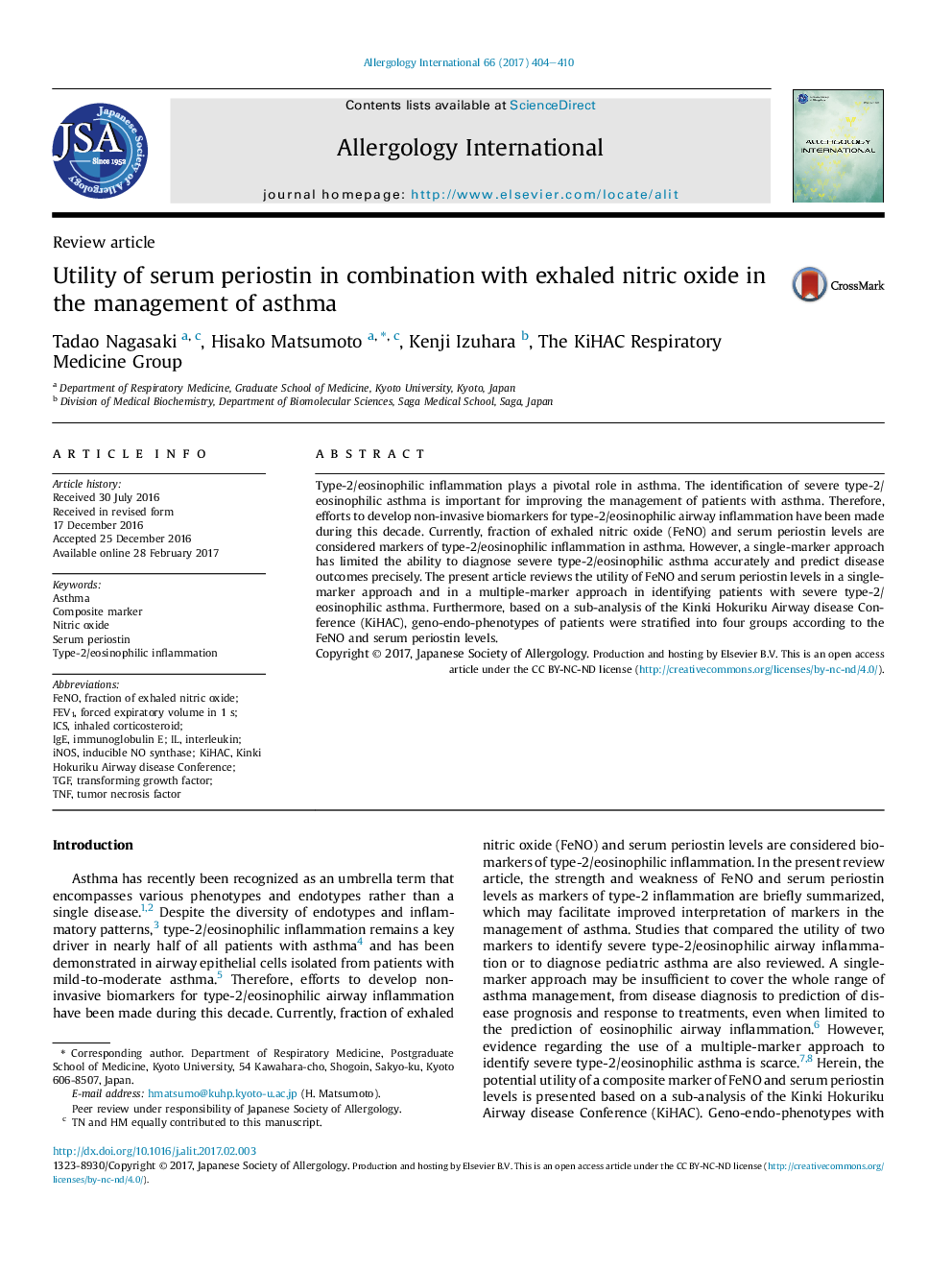| Article ID | Journal | Published Year | Pages | File Type |
|---|---|---|---|---|
| 5665255 | Allergology International | 2017 | 7 Pages |
Type-2/eosinophilic inflammation plays a pivotal role in asthma. The identification of severe type-2/eosinophilic asthma is important for improving the management of patients with asthma. Therefore, efforts to develop non-invasive biomarkers for type-2/eosinophilic airway inflammation have been made during this decade. Currently, fraction of exhaled nitric oxide (FeNO) and serum periostin levels are considered markers of type-2/eosinophilic inflammation in asthma. However, a single-marker approach has limited the ability to diagnose severe type-2/eosinophilic asthma accurately and predict disease outcomes precisely. The present article reviews the utility of FeNO and serum periostin levels in a single-marker approach and in a multiple-marker approach in identifying patients with severe type-2/eosinophilic asthma. Furthermore, based on a sub-analysis of the Kinki Hokuriku Airway disease Conference (KiHAC), geno-endo-phenotypes of patients were stratified into four groups according to the FeNO and serum periostin levels.
Graphical abstractFrequency of asthma exacerbations over 2 years following enrollment and frequency of IL4RA rs8832GG genotype in patients belonging to the four groups stratified according to FeNO and serum periostin levels. FeNO, fractional exhaled nitric oxide.Download high-res image (118KB)Download full-size image
